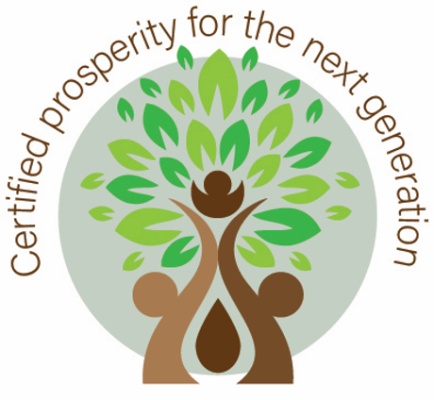(BPRW) Americans Willing to Pay More to Eliminate the Racial Wealth Gap, Creating a New Opportunity for Black Business Owners
New Certification Cues Purchasers to ‘Purchase for Prosperity’
(Black PR Wire) New York, NY – Unprecedented national research released today provides encouraging news that most Americans are willing to pay a premium price for products and services if they know that they are helping to reduce the racial wealth gap in the U.S. The study also explored consumer interest by geography and key demographic segments for a seal certifying Black-owned and operated businesses.
The research serves as the driving mission for the Fund for Social Equity, a new nonprofit that has tested a seal to identify businesses owned and operated by Black Americans as a way to reduce the wealth disparity between Black and white Americans.
The racial wealth gap between Black and white households continues to widen in the U.S. according to the latest research from the Board of Governors of the Federal Reserve and now stands at $44,890 and $285,010, respectively.
When asked about their purchase likelihood of a product or service at a premium price with an identifying seal:
47% of all Americans surveyed definitely or probably would buy, and that rises to 78% among Black Americans,
77% were neutral to positive on the concept, and,
Alienation (rejection of the concept) at 23% was low.
“We approach the racial wealth gap with a marketing-first mindset and our research finds that nearly half of all Americans definitely or probably – top two boxes – would purchase at a higher price products and services identified as Black-owned,” said Mark Koide, co-founder of the Fund for Social Equity (FSE) and a life-long marketeer. “This is a potential game-changer for any business that is Black-owned and seeks to differentiate itself.”
FSE is led by an inclusive Board of Advisors also available at https://fundforsocialequity.com, which is comprised largely of marketing and nonprofit leaders who are committed to ending the racial wealth gap.
“In addition to finding large and scalable subgroups within the national general population panel which supported the distinguishing seal with top two box scores of 47%, there were very few concept rejectors,” said April Jeffries, who led the FSE team at global researcher Ipsos and serves as its global president of ethnography and immersion. “The bottom two boxes account for less than 25%. The concept is much less polarizing than we initially expected.”
Arva R. Rice, CEO of the New York Urban League, added, “The New York Urban League commends the Fund for Social Equity on its commitment to decreasing the wealth gap between Black and other Americans.”
Mark Winston Griffith, an advisor to FSE who is an award-winning journalist, professor of Community Economic Development at Pratt Institute, and co-founder of several New York-based consumer cooperatives, said, “The FSE is sharing our research and is interested in collaborating with like-minded partners who believe the racial wealth gap can be addressed from a community-up perspective by driving more dollars to Black-owned businesses. FSE is promoting our research findings partly to help identify collaboration partners who can help us advance our mission. For FSE to become operational as a certifying organization – our next big step – requires infrastructure in the form of expertise for membership, certification, and marketing communications which might align with the ambitions of other organizations. We welcome hearing from all interested collaborators.”
More than 15 business sectors were tested and everyday purchases in food and consumer products scored the highest in appeal across expenditure categories. Additional analysis provides detailed breakdowns by regions and demographics of the U.S.
By region, the West South Central, Middle Atlantic, South Atlantic, Pacific, and East North Central Census divisions demonstrated greatest appeal. And among demographics, Millennials, Blacks and Democrats demonstrated the strongest interest. To read and download the research summary, please visit: https://fundforsocialequity.com/#research.
The label is envisioned for use in all industries – B2B and B2C. It will also be featured at retail and employer sites as a badge indicating fulfillment and ongoing verification of the stringent FSE standards, which as tested include: Black American ownership of more than 50% of the company, and operated with more than 25% in all management positions identifying as Black American.
Example of some of the findings from the research summary are found in the accompanying graphic, which shows that “Food and Grocery is the best category suited for the seal although most consumers aren’t willing to pay over a 10% premium for the certification.”
These are some findings from a Fund for Social Equity poll, with data collection done by Ipsos. For this survey, a sample of 4,000 adults ages 18+ from the continental U.S., Alaska, and Hawaii was interviewed online in English between March 29-30, 2023. The sample was drawn from Ipsos’ online FastFacts panel. The sample for this study reflects fixed sample targets on gender, age, and region. Posthoc weights were made to the population characteristics on gender, age, race/ethnicity, and region. Statistical margins of error are not applicable to online, non-probability polls. Instead, the precision of these online polls is measured using a credibility interval. This poll has a credibility interval of plus or minus 3.4 percentage points for all respondents, adjusted for the design effect of 1.5.
To donate to the FSE, please visit here.
Contact Neil Foote, neil@neilfoote.com, 214.448.3765 or email media@fse.org
The content and opinions expressed within this press release are those of the author(s) and/or represented companies, and are not necessarily shared by Black PR Wire. The author(s) and/or represented companies are solely responsible for the facts and the accuracy of the content of this Press release. Black PR Wire reserves the right to reject a press release if, in the view of Black PR Wire, the content of the release is unsuitable for distribution.



